On Friday 13th October 1307 in Paris, France those of the order of the Knights Templars were arrested and later hanged, under the connivance of a cash-hungry King Phillip and his papal puppet, Pope Clement V. On Friday 13th November 2015 in Paris, France around twice as many people have been killed; gunned down and bombed, this time terrorists have falsely excused themselves in the name of a different religion, Islam.
[Editor Notes: Although terrorists did so in the name of Islam, this does not reflect the religion as a whole, as most do not share the same views nor support that behavior at all].
Today, the morning after, I open a package that within it contains Michael Schenker’s Temple of Rock’s new double A-side single, Communion/Saviour Machine. Can rock and roll heal the wounded spirit today? I wonder.
Fresh with the success of its parent album Spirit On A Mission the band are about to embark on a tour as special guests to Judas Priest, prior to their own headlining one next January. But before all that they’ll be in concert at Joy Eslvaa, in Madrid, Spain; an event that will be filmed and released on DVD and Blu-ray after touring has completed in 2016.
“We are all hugely excited about this and chose Madrid because of the immense support we have received there in the past,” said Schenker. “The crowds there have always been very special to me other the years. Their passion for live music is second to none and we hope to really capture the energy and excitement from both the band and audience on this DVD.”
It took me more years than I care to remember to recapture the first time I saw Michael Schenker. That happened with the release of what we used to call videos back in the day, when The Story of UFO was released. I nearly wet myself as once more I saw that footage of the band playing ‘Light’s Out’ that had appeared on The Old Grey Whistle Test music programme from when I stayed up late as a youth: Out of the blackness a distorted organ whirred, a cocky singer impersonated Rod Stewart, microphone stand swinging and all, and a band rocked over a smoky stage; then about two minutes in this beautiful young blond with an unbuttoned black chemise strode forth, notes of ecstasy squealing out from a Flying V guitar strategically placed between open thighs. My own knees went weak, I was besotted. That he was male and I already confident in my heterosexuality meant the only way I could consummate this new love affair was by rushing out and buying all those 12 inches he’d played on, as soon as pocket money dared allow.
Within a year the band were releasing Obsession and I was having my hair permed just like Michael Schenker wore his on the album cover. When they played Birmingham Town Hall I was there, and so was Sounds writer Geoff Barton whose review of that gig helped catapult the band to the forefront of the UK rock scene, also present were members of Judas Priest, sussing the competition no doubt. But the blond in black wasn’t there himself for much longer, no sooner had the double live Strangers In The Night come out than he’d done a runner from the band for a second time (the first time they’d quipped that he’d gone off to join the Moonies cult). Other than a one-off b/w photo of him looking worse for wear with members of Thin Lizzy and ex-members of The Sex Pistols at a Greedy Bastards’ gig he had vanished without trace.
Then the rumours began to circulate (not the ones about Rob Halford; everyone in The Midlands knew the truth on that score and couldn’t care less), Michael was back with the band UFO had stole him from, The Scorpions. The Teutonic rockers were slowly clawing UK interest. Tokyo Tapes was his replacement Ulrich Jon Roth’s final hurrah with them; their version of Strangers In The Night, and now his older brother Rudolph and co were looking for a bigger piece of the ‘Action’ than on the sub-psychedelic beat group one they’d recorded with Michael when he was 15. What they got was him appearing on three tracks on the album that helped rebrand them ready for rock’s premier league, Love Drive. That some thirty years later the rhythm section of Francis Bucholz and Herman Rarebell would rejoin him as part of the Temple of Rock redraws the circle. As we do now, with another mention of Paris: The Scorpions were due to play there, but they flew in Matthias Jabs to play guitar, something they began to do increasingly, Michael’s health was frail they claimed. Some months later, Birmingham Odeon was packed; previously The Scorpions had only been able to play Barbarella’s nightclub (as featured in Jonathan Coe’s novel and later TV adaptation, The Rotters Club) to a half-full audience. We had come to see our blond god, the one whose poster would line the side of my wardrobe for many a year. He was not present, but the band proved their worth in the birthplace of heavy metal, that and Francis Buchholz’ broken English heartfelt thanks to the audience meant their own time for ascension among rock’s pantheon had begun.
But wherefore Michael Schenker? Was our hero struck down too ill to ever play another note? The New Wave of Heavy Metal was upon us, bands coming out of the woodwork up and down the country playing their rock a little faster, a little harder, and certainly more ragged around the edges. A younger generation, themselves influenced by UFO, Judas Priest and AC/DC more than Sabbath and Purple. That so many of those guitarists sought a searing melodic tone, Schenker’s signature sound, was also noticeable.
Michael Schenker was precise and articulate as a player from early in his career, taking the lyrical wit of The Shadows’ Hank Marvin into areas of Strauss like classical arrangement or Bavarian folk with a schadenfreude character all applied to the aural dynamics being demonstrated live and on record by Jimmy Page and Ritchie Blackmore in the early 70s. But melody and technique were what first separated him from the pentatonic blues scales rockers playing the clubs. His Gibson Flying V, Marshall amp and a well discovered technique of utilising a Cry Baby wah-wah pedal to effect a sweet high-ended tonal quality were what did the trick. Andy Powell of Wishbone Ash had earlier travelled a similar route but Schenker gave it added bite, alongside the vibrato effect that could be found in the work of Mountain’s Lesley West. It would be stretching things to declare The Scorpions’ debut Lonesome Crow held more than the barest traces of greatness to come, but by the time he was 17 and had recorded Phenomenon with UFO there was a seismic shift as Michael Schenker’s talent began to reveal itself.
Exquisite melodies played at blinding speed over rock rhythms or slowed down to fit waltz figures, and on tracks like ‘Queen Of The Deep’ sometimes both during the same song. That there was often more than one solo being played at the same time; sometimes in counterpoint at others caressing and edging the main one on, showed a craftsman of fine taste. To achieve a fuller guitar sound live he applied a technique that combined aspects of both rhythm and lead playing, first made popular by Johnny Kidd And The Pirates’ guitarist Mick Pirate and latterly effected by Dr Feelgood’s Wilko Johnson, but Schenker’s sound was his own, and can be heard effectively on record throughout the classic ‘Doctor Doctor’. With each consecutive album UFO became a harder, tougher band but it wasn’t just the greatest hits that they would play on tour that excited genuine fans – On record there were songs that often blurred categorisation, as they – lead by Schenker compositionally – played acoustic ballads, veered towards techno-flash prog rock and ultimately created their own signature sound that others with better management, less drug/alcohol/personal issues would build stadium-packed careers on. The classic UFO line up would collapse into each other during the false ending of their live version of ‘Rock Bottom’, it would be a few years more before word got out that this was a bonafide metaphor for the band’s offstage reality.
However, Mental Mickey; The Mad Axeman as the rock press would come to daub my youth’s hero was about to make a dramatic return. Egging their bets that Schenker could make the solo leap that Blackmore had in fronting Rainbow, Chrysalis Records weighed in with a heavy promotional campaign for The Michael Schenker Group debut. The weekly music papers (yes, those existed, dear grandchildren) carried adverts of Schenker, his Obsession-era cat suit apparently torn from him save for the black leather strides as he sat in some mad scientist’s laboratory about to be experimented on, and worst of all his golden locks were shorn. That they announced a film promoting the new ‘Armed And Ready’ single would be played at selective branches of WH Smith’s record departments in the UK was truly unique. MTV did not exist, specially made films of bands that would appear on Top of The Pops were infrequent, and the only one that had generated genuine mass interest had been Queen’s ‘Bohemian Rhapsody’. Why the hell was some unknown German guitarist getting such mainstream high street attention?
Well, UFO with Lone Star’s Paul Chapman on board (he’d previously briefly played alongside Schenker in the band prior to the Force It album and stood in for him during his missing in action bouts) were now an even bigger act, especially in the USA, while the aforementioned Blackmore’s Rainbow were suddenly scoring hit singles on top of all their other sold-out glories. More importantly the signs were that hard rock and heavy metal would own the record industry come the next decade, and if someone happened to invent something like MTV then a photogenic blond might do for music what Bjorn Borg had done for tennis. He was also being managed by Peter Mensch, who would go on to strike success with Metallica and Def Leppard among others. Money was riding on Schenker succeeding.
I remember standing upstairs in WH Smiths in Birmingham city centre’s High Street, along with others taking time off from work or college, mesmerised by the telly on the wall that kept repeating a Frankenstein-derived video of the reborn Michael Schenker letting rip with this E octave jumping riff as newly discovered singer Gary Bardens sang along. We were joined by 3,000 more when the band, soon to be going under the abbreviated MSG banner, played The Odeon, New Street. It would have been in January, I know because I initiated my younger brother, into rock’s fraternity by buying him a ticket for the gig.
From the instrumental delicacy of UFO’s ‘Belladonna’ recomposed as ‘Bijou Pleasurette’ to the pioneering musical adventurism of ‘Lost Horizons’ (that fellow ex-UFO member and MSGer Paul Raymond has declared to be the blueprint for Iron Maiden’s own world dominance), the most important thing to listeners of that time was that Michael Schenker was moving forward musically.
But then the rot set in. Mickey wasn’t quite the golden god we’d imagined: An insecure individual yet with control freak tendencies, exasperated by chemical and alcohol-fuelled dependency problems. He would sack and temporarily regain Bardens; an integral part of his early solo career, while many others would go through the ranks and his newer music began to sound less than inspired. Plus, those of us who’d been there early on were also moving onto new pastures and our own fuddled mistakes along life’s journey. I would return to check out the AOR variations of the early McAuley Schenker Group variation, but nothing really stuck for me until it was announced my gods would once more Walk On Water, for the classic Lights Out/Obsession-era UFO had reformed.
But the band’s currency had become devalued, originally only available on import it was still worth every penny. With the opening declaration of intent that was ‘Self Made Man’, Schenker bristled with a modern urgency emitting textures that danced between outrageous fury and the calm that resides at the centre of a storm; throughout his playing was a return to form. Meanwhile Phil Mogg no longer sang streetwise warnings like an elder brother, but graphically outlined middle-age’s undiminished rage in ‘Pushed To The Limit’ and shared intimate regret in ‘Dreaming Of Summer’ wherein Schenker’s notes on both electric and acoustic guitar reminded us how with just a touch of his fingers he could make a good song great. Live at Wolverhampton Civic Hall (with AC/DC’s Simon Wright on drums) they were so frigging cool; conquering heroes before a packed crowd, Way and Schenker sharing a microphone to add backing vocals alongside Raymond. The sound desk recorded double live CD of that night, Werewolves Of London, fails to capture the night. Nor could they for long: Old animosities and personal habits took hold, the proceeding albums had their moments, but rarely. Schenker whacking Raymond with his guitar over in Japan was just plain stupid (though he’d apparently done the same thing to Way in Germany back in the 70s). Yet they carried on (needed the money probably) until drunk-on-stage in Manchester, again it was Schenker who went too far: abusing the crowd, and threatening Mogg. The tour was cancelled. I did not get to see them in Wolverhampton again as planned. Game over.
UFO would eventually rebuild themselves with Vinnie Moore on guitar, Michael had to genuinely hit rock bottom (without any pun intended) to find a road to recovery. But he has done. After being reduced to playing the toilet circuit the only way was up. Decent management, abstaining from alcohol, and developing a work ethic (not always easy when you’ve been a child prodigy and people are prone to fawning over you) have been the key ingredients; rediscovering a love of playing for itself was the not-so-secret one; and the fact that he seems to relish in sharing his talent with audiences these days (the past’s elegant frown of concentration replaced with a Cheshire Cat grin under his now ever-present beanie cap). That MSG has now been put aside in favour of the Temple of Rock has also helped achieve this current state of play.
“The temple of rock is within me,” said the guitarist a couple of years back. “The rock guitar sound that I fell in love with, mostly expressed as lead breaks, is what I have nurtured and treasured all of my life.” While his spiritual inclinations have been intimated in the past, he can now better articulate them in so far as they regard his music: “I am entering a new stage of my life, a new level of existence enjoying life more than ever, reaping the joy of all sorts of developments from the past. These days I just want to go out there having fun playing”.
“Also, it seems to me that collectively, with true expressive makers of rock music, we have been building the external temple of rock for many years and have now come to the point of putting on the roofing and celebrating the almost completion of the temple. All generations of this period are meeting all over the world on one stage it seems celebrating an era of handmade rock which will never be the same again due to the invention of new technology but of course new temples and new wonders will arise to enjoy expressions in new ways”.
Too heavy for you? Too freakin’ out-there hippy-dippy for ya? Don’t worry. What matters is Schenker’s become focussed. He had to shake some indifference from his public and the critics initially but with Rarebell, Buchholz, singer Doogie White and Wayne Findlay on keyboards and guitar beside him he’s a credible force to be reckoned with again. It was with trepidation I went to watch him live again two years back, and he did not disappoint. That it was my birthday, and among the friends there with me was one who’d also caught UFO on TV when we were kids, but never seen Schenker live himself until that night, made it extra special. Again, such things redraw the circle. Is there a hidden meaning to them, I question.
Here we are today, Mental Mickey, the Mad Axeman’s a whole lot saner but the world at large has one almighty problem with people hell bent on slaughtering others for kicks (no matter what lies they tell), most notably last night in Paris where gunmen shot down those enjoying family meals in restaurants and fans watching an Eagles of Death Metal concert at the Bataclan Theatre. In sad irony I learn that UFO had played there back in the 70s, the band’s former bass player Pete Way himself “appalled” by what has happened there today recalled: “I remember our excitement at that first French gig and the enjoyable night out we had afterwards.”
Psychologist Carl Jung devised the terminology synchronicity to explain what we might call in layman’s terms meaningful coincidences. I’ve come across an awful lot of them in the last 24 hours. I’ve not prayed these bad things go away but I have sat in a church and thought long and hard. Where? Right here as I type, at my own temple of rock as music blasts out loud from the speakers around me, and yes, Michael Schenker’s Temple of Rock’s new double A-side single has been among them.
In my previous review of the Spirit On A Mission album I described the unexpected grooving strut of ‘Communion’ that rumbles between Schenker’s fluid guitar lines, and noted its “Give me the water, given me the wine,” lyrics were your typical sex, drugs and rock and roll party celebration. Partnered here directly with ‘Saviour Machine’ their titles suggest an ongoing religious theme. The latter however is a much more serious proposition questioning the folly of war and such atrocities as genocide. From slow grinding guitars to neo-Arabian textures, the music then hints at the heavenly but is overcome in an aural battleground as White claims deliverance can be found, though whether that be from God, love, or good old rock and roll remains suitably obscure.
Can rock and roll heal the wounded spirit today? I asked an awful lot of words ago. No. Decidedly not. But it is a distraction, a good one. Thank you for reminding me, Michael Schenker. And thank you for being part of the soundtrack to my own insignificant life story thus far.
It was a Friday 13th in 1307 in Paris, France when the Knights Templars were arrested then hung. This Friday 13th just gone in Paris, France innocent lives were gunned down and people bombed. From this day forward, I will do my best each subsequent Friday 13th of my life to attend a Temple of Rock in defiance of such evil and play my music loud, hoping that one day the heavens will hear and if there is a God they will come down and wipe the smiles from each and every murdering terrorist’s face for daring to abuse humanity in his or her name. I invite each and every one of you to gather with me in that temple… There’s room for everyone.

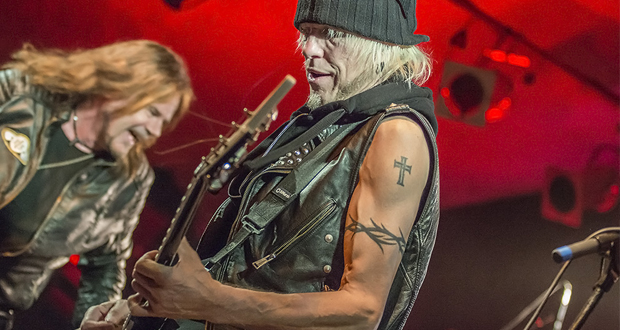




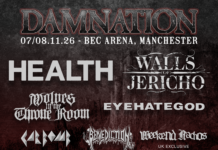

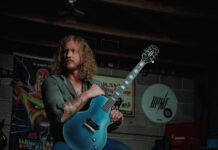
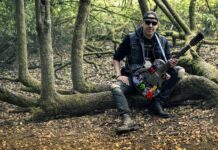
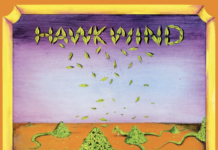
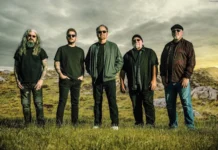

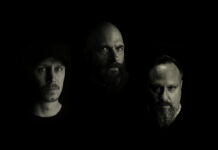



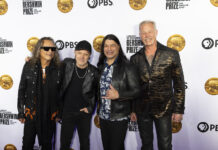
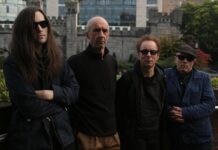

U F O Winterland, San Francisco, Ca. 1977